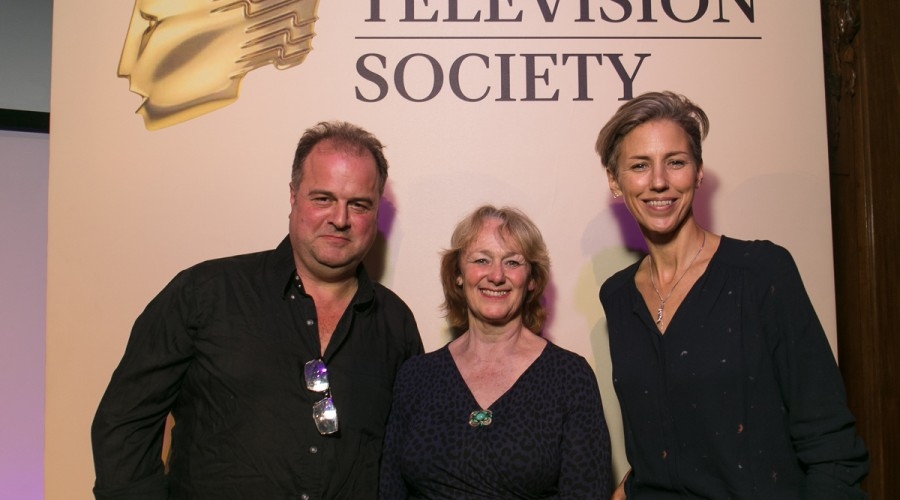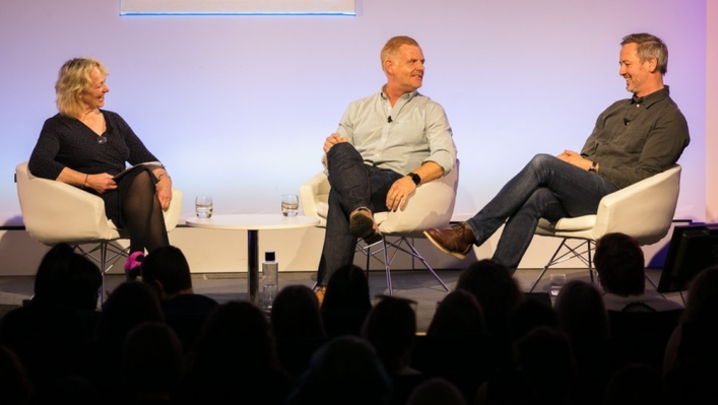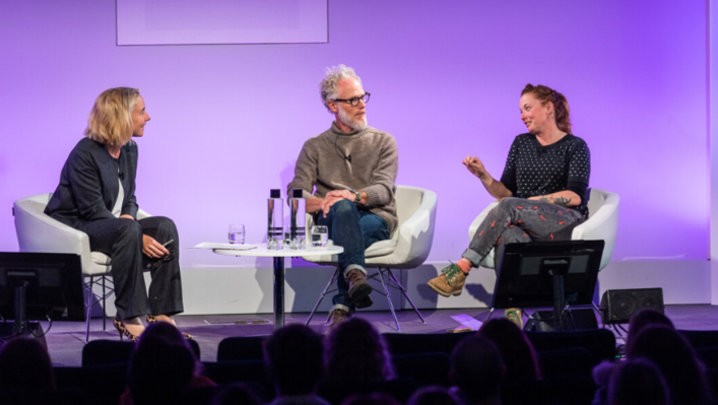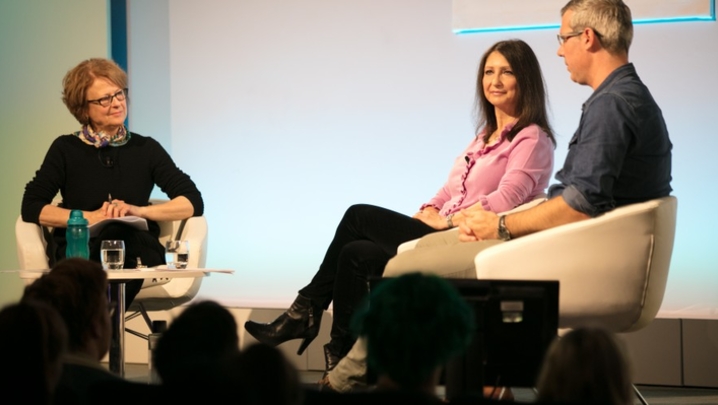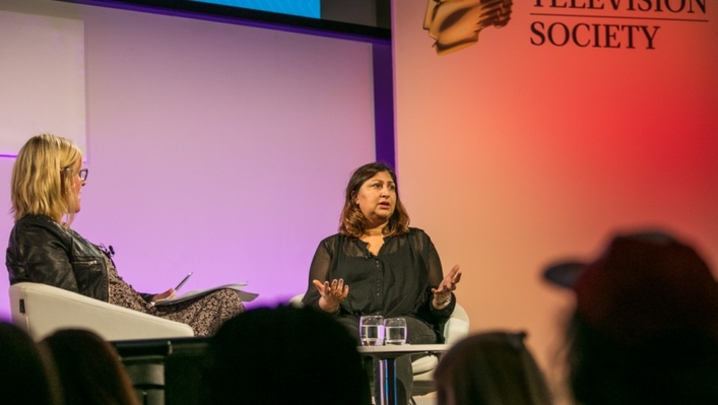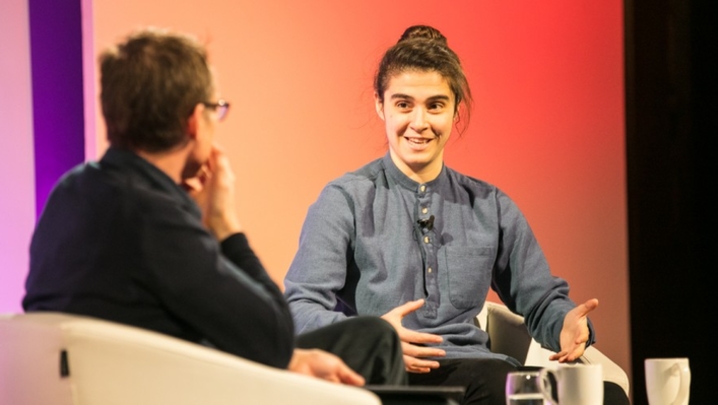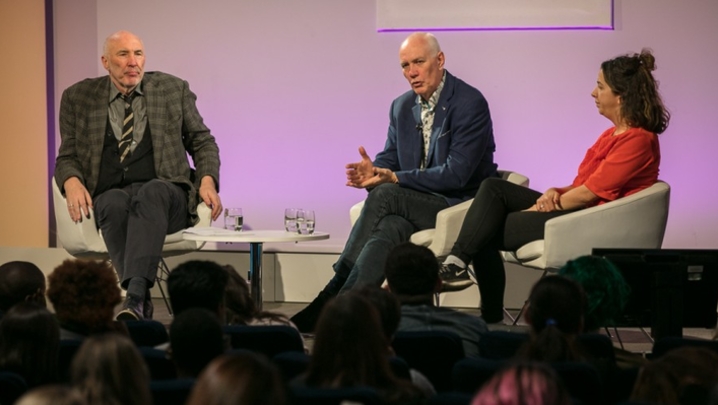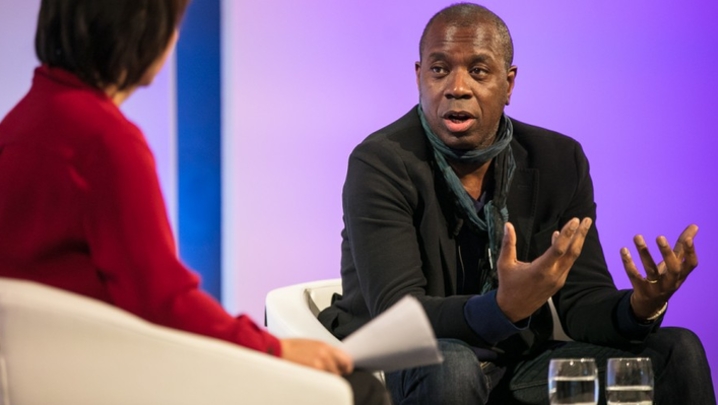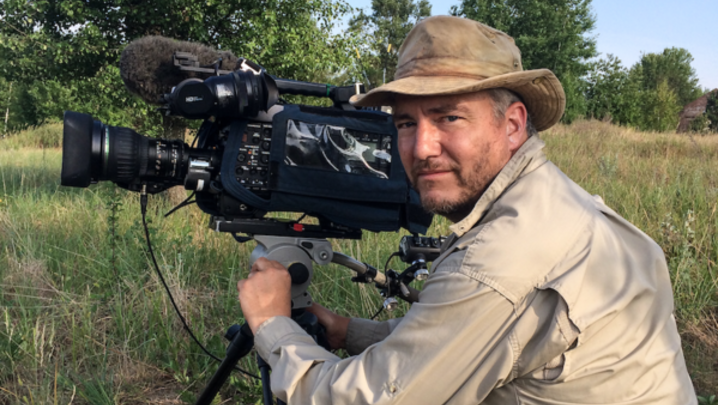The job: “If you do what we do, you have to love it because it’s not easy. It’s pretty much an all-consuming passion.” (Darlington)
“I’ve been from the bottom of the Pacific Ocean to the top of a volcano in Ethiopia and everywhere in between. I’ve had the most amazing experiences – and been paid to do it.” (King)
People versus machines: “Cameras are boxes that light goes into … How you control the light that you capture in the lens … and what you choose to [shoot] makes you a cameraperson, it’s not about the equipment.” (King)
“It is about your ‘eye’ and composition. I’m a composition fascist – I get really upset if things come in framed wrongly.” (Darlington)
Storytelling: “It doesn’t matter what camera you have, if the story’s no good you’re on to a loser.” (Darlington)
“Learning how to tell stories is absolutely key in our field,” (King)
King on shooting quickly: “The most expensive thing on set is time – if you’re a slow cameraman and you decide half way through a scene that you want to change the lighting, you’re not going to get any more work. People want you to get it right first time.”
Darlington on not being a slave to fashion: “Everything now seems to be drone [shot] … If it’s to drive a story and you need it to illustrate a certain point, then that’s fantastic, but you don’t have to have a drone shot.”
King on being an all-rounder: “It’s vital that you understand all the elements that make up the film craft: sound; editing; camera; script; music. If any of those major items is faulty, the product falls down.”
King on style: “Look up other people’s work and whoever you enjoy, try and replicate that … that’s what we do – take other people’s work, mix it all together and that’s your work. You can’t reinvent the wheel every time you put a camera on somebody. You are influenced by paintings, photographs and films – you’ve got to absorb as much of it as you can. It becomes your own style through an assimilation of other people’s work.”


